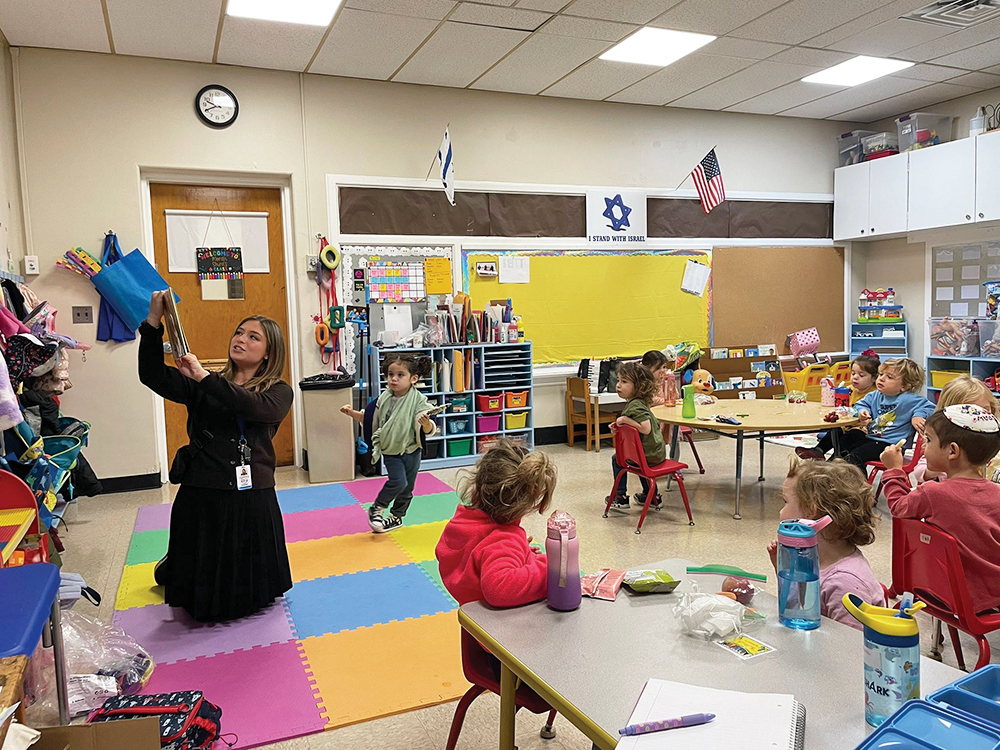The tale is told of a famous Greek philosopher who was once caught in a morally compromising situation. His students cried out, “Our master, how could you act like this? You have dedicated your life to extolling the virtues of man in your great works of ethics!”
“That is true, my honorable disciples,” he replied, “but those are the words of the philosopher. These are the actions of the man.”
***
Each morning and evening, we recite the verse in the Shema, “And you shall teach them to your children.” Our Sages famously explain the deeper meaning of the verse: when a teacher imparts Torah wisdom, the student becomes his spiritual child. Today’s daf discusses what to do when faced with the dilemma of having to choose between returning only one of two lost items—one belonging to your parent, the other to your Torah teacher. Perhaps two pets had wandered off and you spot them both and can only retrieve one of them. Which obligation takes precedence—the honor of your biological father or your spiritual father?
מתני׳ אבדת אביו ואבדת רבו של רבו קודמת שאביו הביאו לעולם הזה ורבו שלמדו חכמה מביאו לחיי העולם הבא ואם אביו חכם של אביו קודמת: גמ׳ תנו רבנן רבו שאמרו רבו שלמדו חכמה ולא רבו שלמדו מקרא ומשנה דברי ר”מ רבי יהודה אומר כל שרוב חכמתו הימנו
רש”י
שלמדו חכמה—סברת טעמי המשנה ולהבין שלא יהו סותרות זו את זו וטעמי איסור והיתר והחיוב והפטור והוא נקרא גמרא
Mishnah: If one finds his father’s lost item and his rebbe’s lost item, tending to his teacher’s lost item takes precedence, as his father brought him into this world, and his rebbe, who taught him wisdom, brings him to life in the world to come. And if his father is a Torah scholar, then his father’s item takes precedence. Gemara: The Sages taught: The rebbe they referred to is his teacher who taught him wisdom, and not his teacher who taught him Tanach or Mishnah. This is the opinion of Rabbi Meir. Rabbi Yehuda says: It means any teacher from whom one learned most of his wisdom.
Rashi: Who taught him wisdom—The logic of reasoning of the Mishnah and the understanding of how to reconcile apparently contradictory cases. And the reasons for prohibition and permissibility as well as liability and exemption. This is what we call Gemara.
What is chochma—wisdom? The understanding of Torah. In ancient times, it referred to the methodology of interpreting and reconciling Jewish law and practice. Eventually, these debates and discussions were compiled and fashioned into what we call the Talmud or Gemara, as Rashi notes. Since Rashi’s time, our corpus of chochma has expanded greatly and would include an array of commentaries, halachic treatises and rabbinic responsa literature.
While chochma refers to Torah wisdom, Judaism does not close itself off to the world at large. Our Sages acknowledged the important contributions of gentile scholars to the understanding and expansion of chochma. From technological advances to scientific discoveries, the rabbis incorporated new wellsprings of chochma into their Torah discussions, as they arose.
Nevertheless, they emphasized, “If someone should tell you there is wisdom amongst the gentiles, believe it. That there is Torah amongst the gentiles, do not believe it.” But if chochma is Gemara, i.e., Torah, what then is the meaning of their declaration?
Some people struggle when they learn Gemara. It’s full of debates and anecdotes, but rarely provides the bottom line, because chochma represents ideas—brilliant flashes of inspiration, that are yet undeveloped. In the kabbalistic tradition, chochma is followed by binah and daas that develop and concretize the idea. Torah, by contrast, is related to the word horaah, meaning instruction. The Torah is a moral guide that demonstrates how to live our lives. Chochma is a vehicle that leads to our purpose in the world.
Biblical critics erroneously refer to certain parts of Tanach, such as Mishlei and Koheles, as the wisdom literature, associating them with similar contemporary compositions. Judaism, however, believes that Torah is not just clever aphorisms, but a guide for life. It’s Divine. Other societies may have valued such ideas simply for their insights. In our tradition, any teachings designed to impact our behavior are not wisdom, they are something far more profound and exalted. They’re Torah—the Divine source of vital energy in the universe. If you read the lessons in Mishlei and are not a changed person, then you must reread them until you truly appreciate the Divinity found in each holy letter.
Throughout the generations, our Sages have approached worldly ideas with caution. The Talmud warns us not to engage with Greek wisdom. And yet, they acknowledge that “there is wisdom amongst the gentiles.” Here’s how we reconcile these approaches: When is worldly wisdom embraced and incorporated into Torah? When it serves as a vehicle to enhance our service of Hashem. Ideas alone that serve no spiritual purpose are eschewed. But ideas that help us understand and appreciate Hashem’s presence in the universe are filtered, critiqued, and if deemed worthy, absorbed into the corpus of Torah.
Certain thinkers have attempted to institute new paradigms to help formulate the right approach to this integration process, calling their methodology Torah im derech eretz, Torah u’madda, Torah v’chochma, and the like. The truth, however, is that we don’t need new doctrines because our Sages have always engaged in the process. It’s called Torah. Anything that contributes to Torah is holy. Anything that does not is Greek wisdom and antithetical to Torah. May you achieve excellence in Torah by infusing your life with its sacred values!
Daniel Friedman is the author of The Transformative Daf book series. He teaches at Touro University’s Lander Colleges and his Center for Torah Values combats Christian anti-Zionism.












